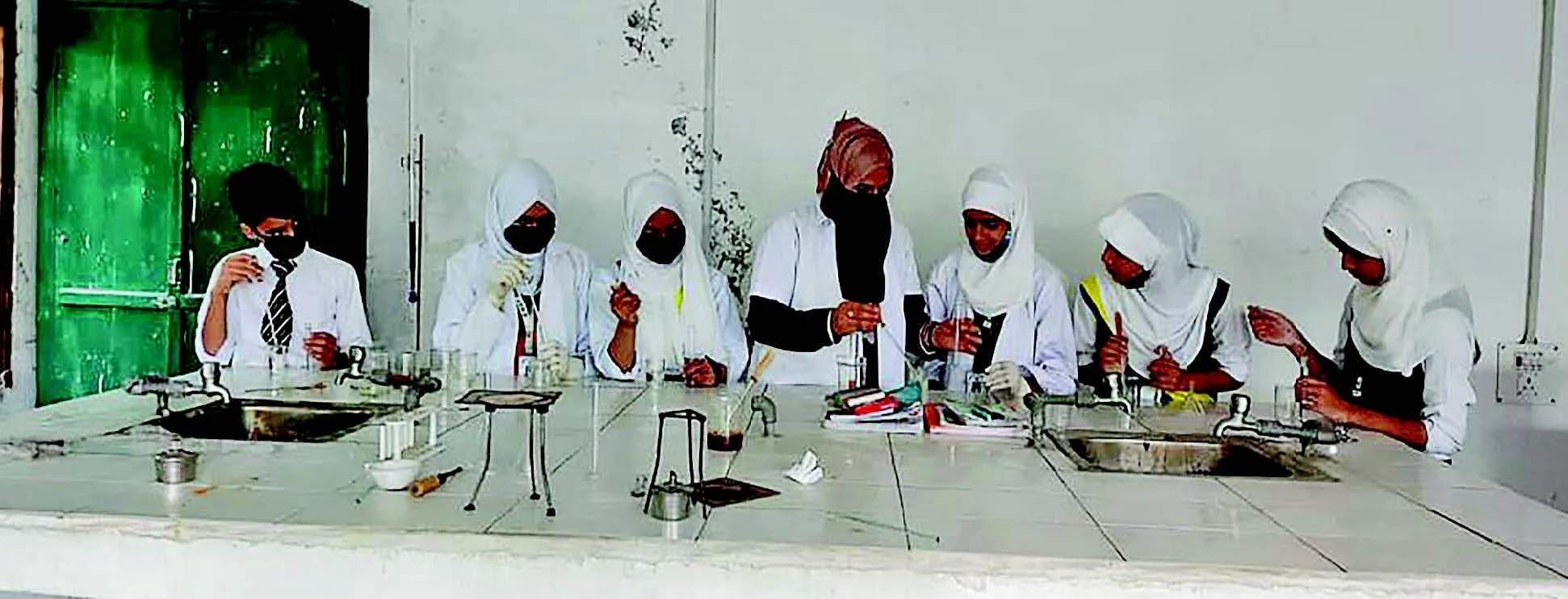While we send our children to private schools, we hardly leave a chance to abuse those who run these schools. In our wayside whisperings, coffee table chit chat, and flippant gossips, we censure these schools with abandon.
Crude capitalism, profane profiteering, and evil exploitation; as if private schools comprise one huge cartel of crime. Yem gai sarie choor – one big bunch of swindlers!
And then all of us wait in long queues to get an admission form for our children; thanks to internet that has made it easy. Up ahead, we seek help everywhere – from godly to worldly – to ensure admission in these private schools. How do we explain this paradox!
A simple explanation is that we need good education for our children, and in the absence of an alternative, we endure this ‘exploitation’.
Occasionally, as a stroke of intense annoyance, we take recourse to media, invoking government action against these ‘erring’, ‘exploitative’ schools. The authorities come down on them with a matching degree of bitterness, issuing circulars, and summons.
Why have these schools in the first place? But in the times of convoluted wisdom, where is the space for straight. A sense of victimhood takes the best of our minds – in case of parents. Power intoxication blinds us to the bigger goal – in case of the officers holding the charge.
And anger never allows us to look inwards and carry the correction – in case of the schools. We rarely focus on what is offered to our children in the name of education, and how they are groomed in schools to face the future.
Our idea of a private school begins and ends with how much we pay, and how much they profit. The government also seems to emotionalise things on this count, gratifying the sense of victimhood of the parents. This is misleading. This is certainly hurting.
Before anyone smells ‘advocacy’ for private schools, here is a clarification. I detest capitalistic tendencies that make it difficult for people to avail fundamental services. I detest that practice to core.
I, like many others, would want government to provide equal resources to all when it comes to education and healthcare. Why only a government employee get Rs 2250 per month per child as school fee, and not everyone.
If health card is for all, why not an education card for all. But that is a far cry. Unless it fits into some capitalistic-market-framework, with a global imperative, education card is just a wish.
Till the time we are close to some ideal situation, or follow the best practices prevalent in some of the model conditions, like Scandinavian countries, how do we deal with private schools.
This, to make them efficient, and root out all forms of exploitation within this space. Only where they actually exist, and not where we presume. An actual map of what the schools are doing and what they are facing might throw up a bunch of surprises, and shocks.
If we go by our impression about these schools – yem che saeri choor – the instinctual reaction is to crack the whip. Those of us feeling fleeced jump with joy, those holding the whip get a high, and those taking the whip cry. Right now it is happening.
But does it serve the cause – education. The regulator can easily wriggle out of any responsibility by saying that it is just not its domain. The parents would hardly register this question while they rejoice in the ‘exploiter’ getting lashed.
And where would the private schools get time to answer this question when they have an existential question staring in their face. So the first casualty in this angry melee is the very thing we should have been all striving to save. As we revel in anger and tug at the bath tub, we forget there is a baby inside – future.
If a bland, flat, uni-dimensional, ‘idealistic’ perspective is applied to live, dynamic, diverse landscape, the law does take its own course, but the landscape changes its course to worse.
Right now, in the name of regulations, may be with good intentions, the entire space where education is imparted is facing deformation. There is a scare, and scare doesn’t end bad practices. It eventually leads to two outcomes. Either the space is emptied, or filled with complex forms of corruption.
The better way for the regulator is to enrich its understanding, enter into effective and respectful communication with the stakeholders, consider legality as just one strand in the entire subject, and involve other strands – society, business, institutional capacities, actual running of an institution, and global trends in education.
The job of a regulator is not to press the buttons of a calculator ensuring that the sum on the screen is always less, but to capture the whole landscape, with all its richness of detail, and make the canvass of understanding as big as it could be. For this the man in the seat, or the men in seats, need to move out of the offices and see the actual roughness of the terrain.
Parents also need to engage with schools in a constructive manner, always holding onto sense and civility. And for the private schools, it is time to gear up for a transformation.
Any incremental, cosmetic changes won’t suffice. There is much in our private schools that demands a radical change. Crying at the regulator is no substitute for a concerted thinking, and professional application of resources.
DISCLAIMER: The views and opinions expressed in this article are the personal opinions of the author.
The facts, analysis, assumptions and perspective appearing in the article do not reflect the views of GK.







